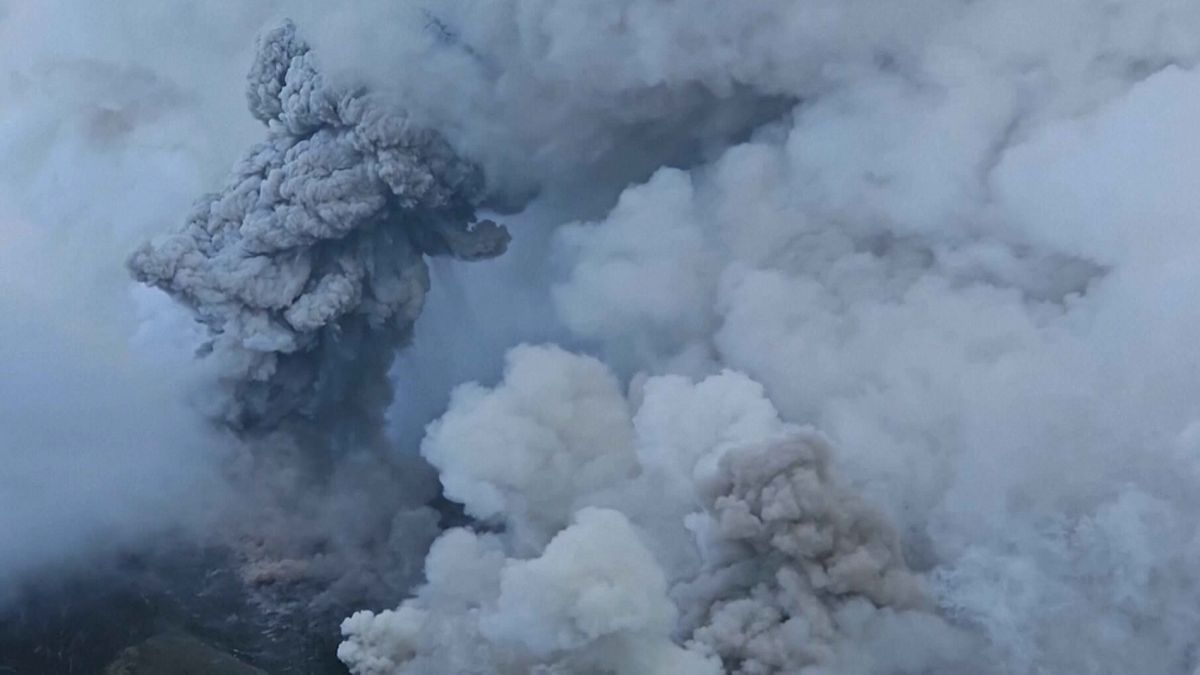

This week, Earth demonstrated its dynamic nature through a series of events that spanned across continents, from volcanic eruptions in Russia to heatwaves in Asia and glacial melting in Antarctica. Each of these occurrences provides a glimpse into both the challenges and beauty of our planet.
In the Kamchatka Peninsula of Russia, the Krasheninnikov volcano has captivated both scientists and nature enthusiasts by awakening after more than six centuries of dormancy. This spectacular yet formidable event was precipitated by a significant 8.8-magnitude earthquake in the region, adding to the intrigue. The ongoing eruption continues to draw attention, offering a rare opportunity to observe geological processes in action.
Meanwhile, on the Iberian Peninsula, the picturesque region of Galicia in northwest Spain is grappling with devastating wildfires. Since Saturday, fires have consumed at least 500 hectares of verdant forestland in Ponteceso, located in the province of A Coruña. Firefighters and local residents are working tirelessly to bring these blazes under control, showcasing the strength and determination of communities in the face of adversity.
Compounding these challenges, Southern Europe faces the added complexity of political and logistical hurdles. In Cyprus, for instance, confusion over evacuation plans and an ineffective early warning system reflect broader administrative issues. These challenges highlight the importance of preparedness and clarity in emergency response strategies, lessons that are critical as the region navigates a summer rife with environmental challenges.
Across the globe in East Asia, Japan and South Korea are experiencing record-breaking heatwaves, causing heightened concern as temperatures rise to unprecedented levels. In Japan, the city of Tamba reached a staggering 41.2°C, surpassing previous highs and setting a new national record. Similarly, Seoul has endured numerous hot nights with temperatures consistently staying above 25°C. These conditions are emblematic of a warming world, urging greater attention to climate adaptation and mitigation efforts.
In the remote sub-Antarctic territory of Heard Island, changes of a different kind are unfolding. This pristine area, renowned for its unique ecological landscape, is witnessing a rapid retreat of its glaciers. Researchers have found that nearly a quarter of the glaciers have diminished in size over the past 70 years, an alarming rate that threatens the delicate balance of the island’s ecosystem. The use of satellite data alongside historical photographs has been pivotal in tracking these changes, reinforcing the value of sustained scientific observation.
Together, these natural events serve as poignant reminders of the Earth’s dynamic systems and the ever-present influence of environmental conditions. While they pose significant challenges, they also underscore the resilience and adaptability of communities and ecosystems alike. As we reflect on the interconnectedness of these occurrences, it becomes increasingly clear that a collaborative, informed approach is essential to sustaining our planet’s health and vitality in the face of a changing climate.
Source: {link}
